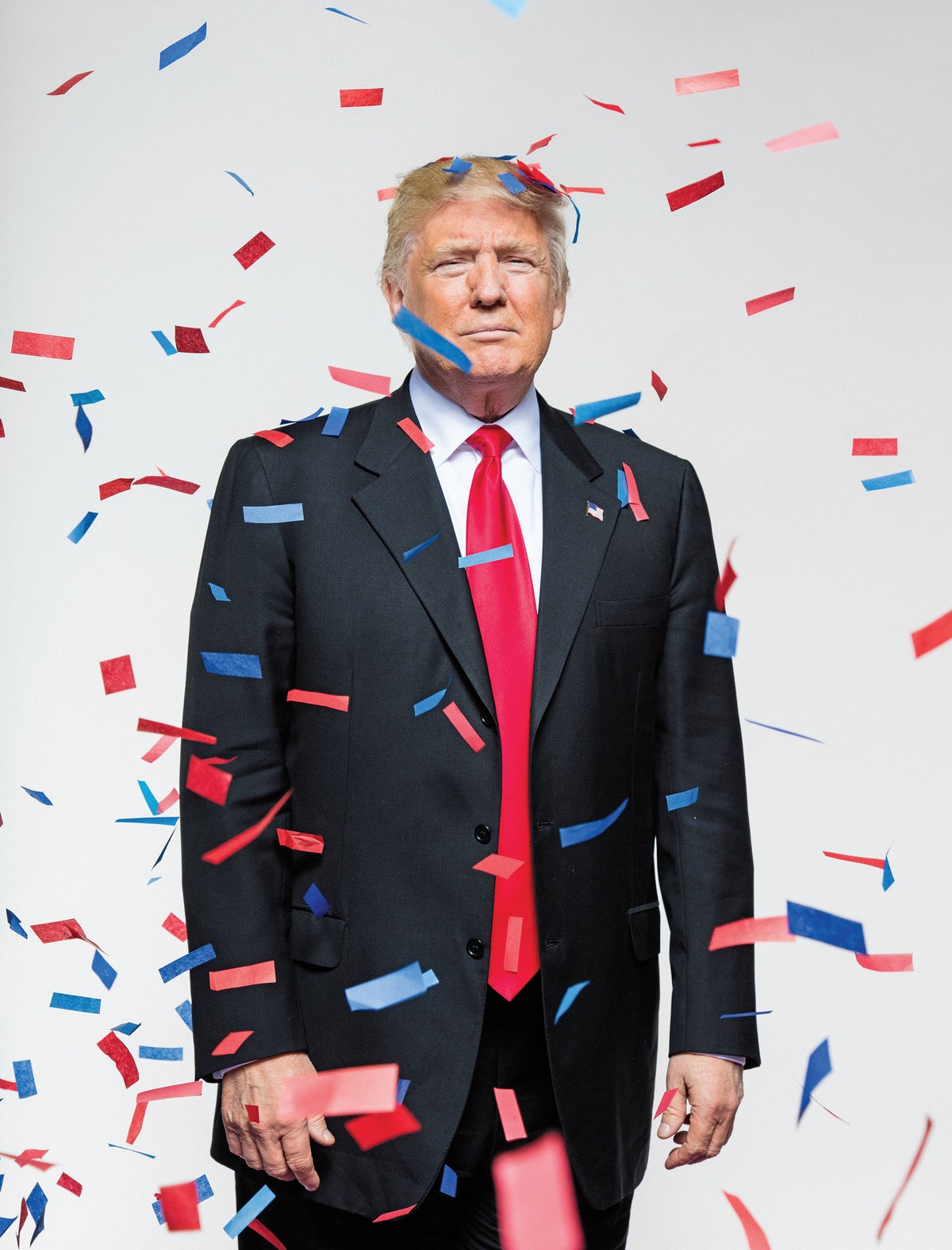BackAgain
Neutronium Member & truth speaker #StopBrandon
Well. That was long.[ Knowing how to rally people and voters and supporters to one's side is not the same as eventually governing well and fairly. Governing depends on following the Constitution and the Rule of Law. How much did Trump follow the Constitution and the Rule of Law, how much of either did he attempt to change for his own interests and not those of the country? How much do his supporters know about the Constitution and Rule of Law he so often attempted to change? ]
Behind his unforeseen success in the 2016 election was a masterful use of group psychology principles
- Donald Trump's rallies enacted how Trump and his followers would like the country to be. They were, in essence, identity festivals.
- Trump succeeded by providing a categorical grid—a clear definition of groups and intergroup relations—that allowed many Americans to make sense of their lived experiences.
- Within this framework, he established himself as a prototypical American and a voice for people who otherwise felt voiceless.
- His rivals did not deploy the skills of identity leadership to present an inclusive narrative of “us.” In that context, Trump had a relatively free run.
It is easy and common to dismiss those whose political positions we disagree with as fools or knaves—or, more precisely, as fools led by knaves. Indeed, the inability of even the most experienced pundits to grasp the reality of Donald Trump's political ascendency in the 2016 presidential race parallels an unprecedented assault on the candidate and his supporters, which went so far as to question their very grip on reality. So it was that when a Suffolk University/USA Today poll asked 1,000 people in September 2015 to describe Trump in their own terms, the most popular response was “idiot/jerk/stupid/dumb,” followed by “arrogant” and “crazy/nuts,” and then “buffoon/clown/comical/joke.” Similarly, Trump's followers were dismissed in some media accounts as idiots and bigots. Consider this March 2016 headline from a commentary in Salon: “Hideous, Disgusting Racists: Let's Call Donald Trump and His Supporters Exactly What They Are.”
Such charges remind us of Theodore Abel's fascinating 1938 text Why Hitler Came into Power, but first let us be absolutely explicit: We are not comparing Trump, his supporters or their arguments to the Nazis. Instead our goal is to expose some problems in the ways that commentators analyze and explain behaviors of which we disapprove. In 1934 Abel traveled to Germany and ran an essay competition, offering a prize for autobiographies of Nazi Party members. He received around 600 responses, from which he was able to glean why so many Germans supported Adolf Hitler. Certainly many essays expressed a fair degree of anti-Semitism and some a virulent hatred of Jews. In this sense, party members were indeed racists or, at the very least, did not object to the party's well-known anti-Semitic position. But this is very different from saying that they joined and remained in the party primarily or even partially because they were racists. Abel discovered that many other motives were involved, among them a sense of the decline of Germany, a desire to rediscover past greatness, a fear of social disorder and the longing for a strong leader.
We would argue that the same is true of those who supported Trump. Some, undoubtedly, were white supremacists. All were prepared to live with his racist statements about Muslims, Mexicans and others. But are racism, bigotry and bias the main reasons people supported Trump? Certainly not. We argue instead that we need to analyze and understand the way he appealed to people and why he elicited their support.
Moreover, we need to respect those we study if we want to understand their worldview, their preferences and their decisions.
To understand how Trump appealed to voters, we start by looking at what went on inside a Trump event. For this, we are indebted to a particularly insightful analysis by journalist Gwynn Guilford, who, acting as an ethnographer, participated in Trump rallies across the state of Ohio in March 2016. We then analyze why Trump appealed to his audience, drawing on what we have referred to as the new psychology of leadership. Here we suggest that Trump's skills as a collective sense maker—someone who shaped and responded to the perspective of his audience—were very much the secret of his success.
Adapted from Why Irrational Politics Appeals: Understanding the Allure of Trump, edited by Mari Fitzduff, with permission from ABC-CLIO/Praeger, Copyright © 2017.
Editor’s note: All but the last section of this article was written before Donald Trump’s victory in the U.S. presidential election, making its insights all the more remarkable. It was updated for Scientific American Mind.

Trump's Appeal: What Psychology Tells Us
Behind his unforeseen success in the 2016 election was a masterful use of group psychology principleswww.scientificamerican.com

